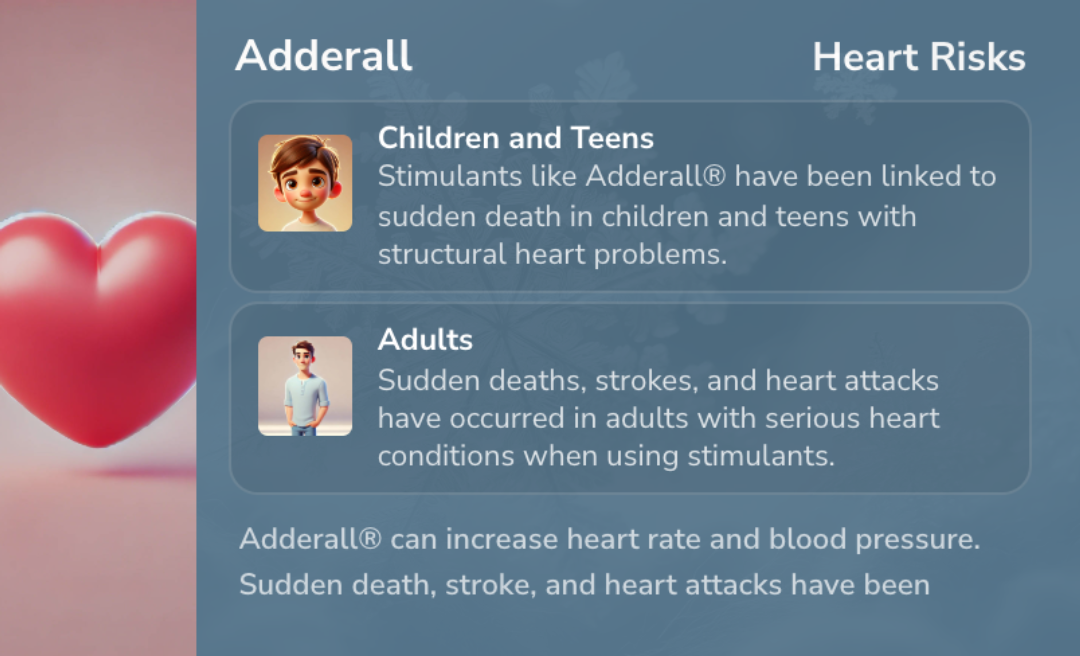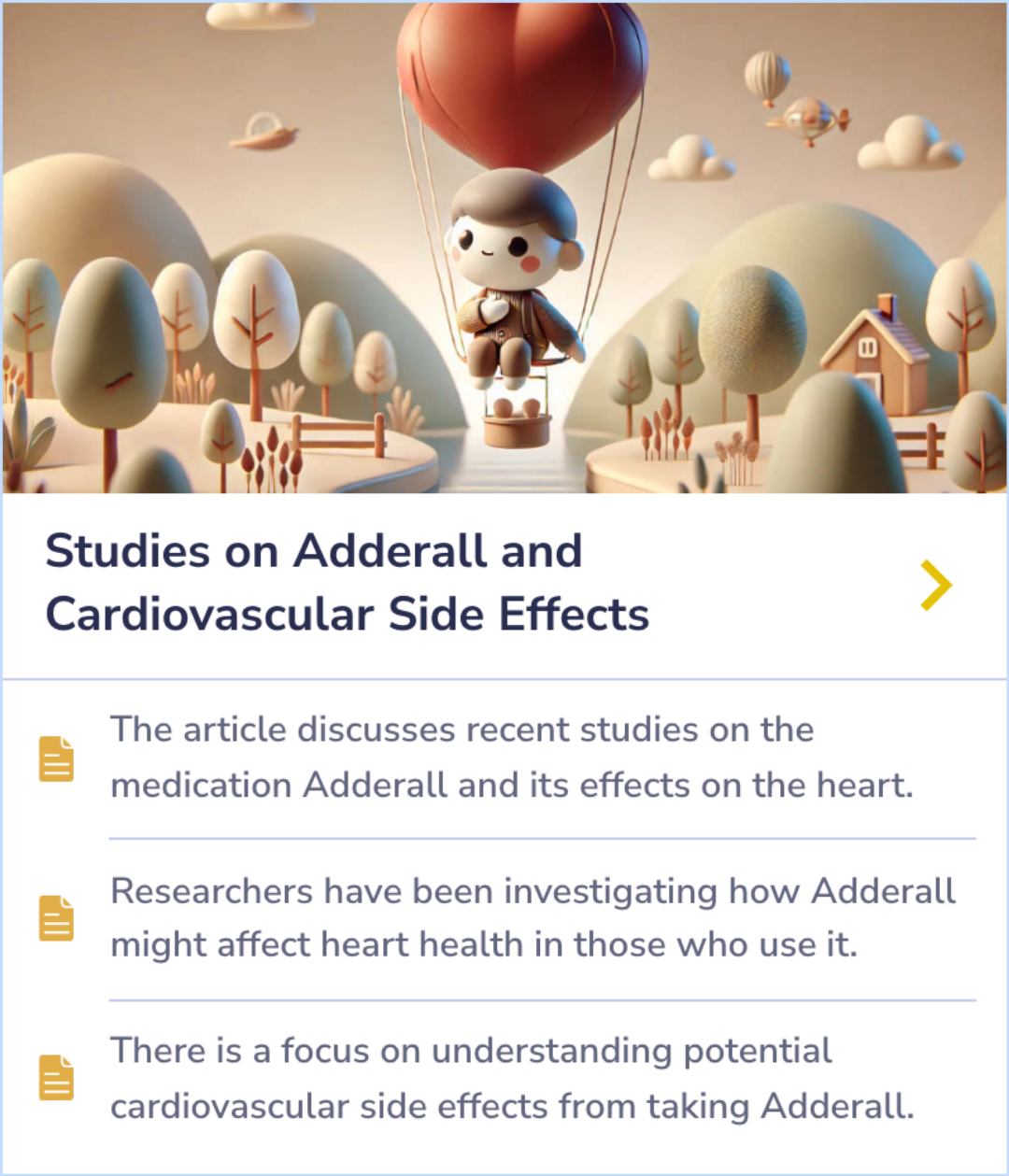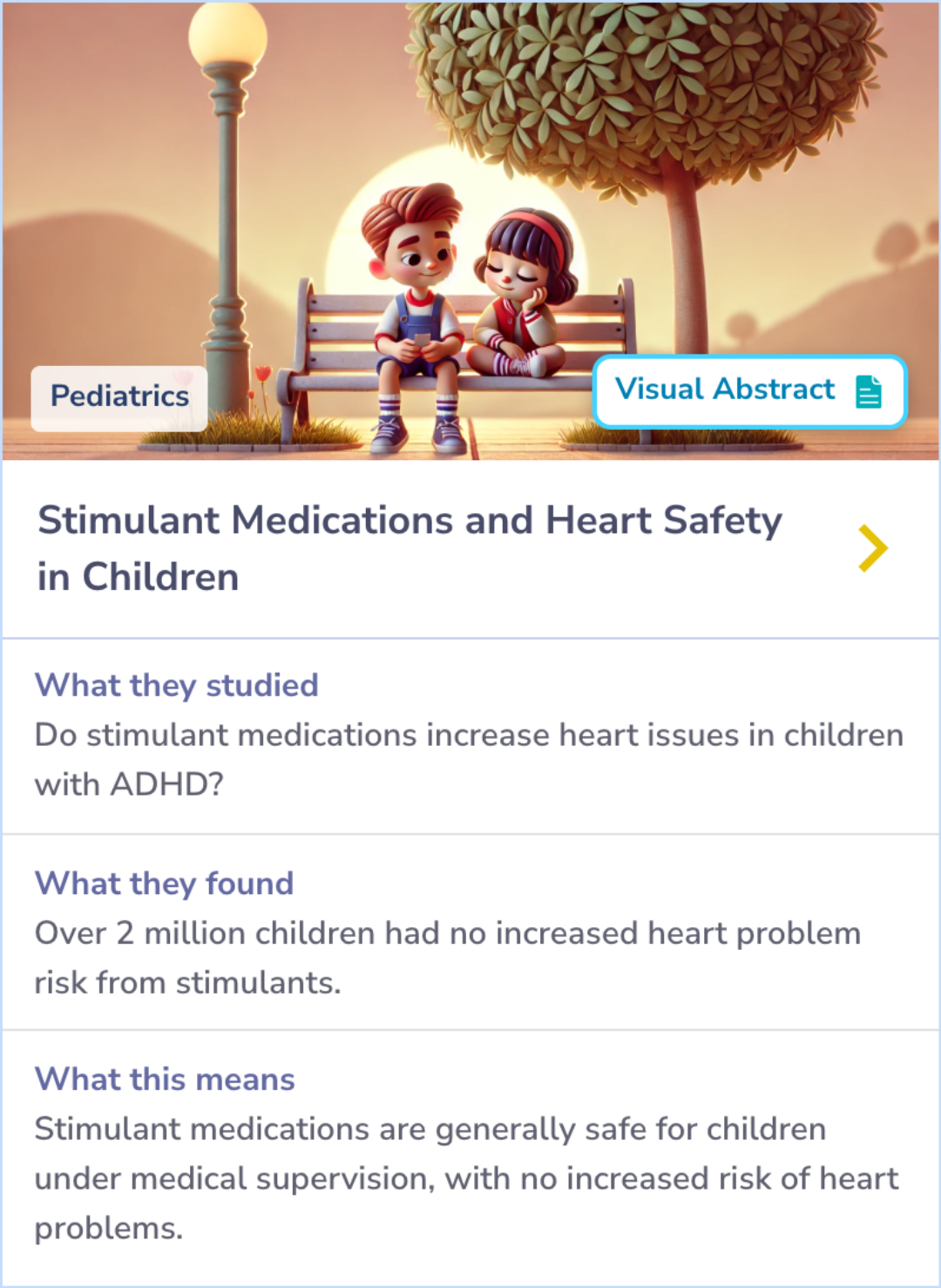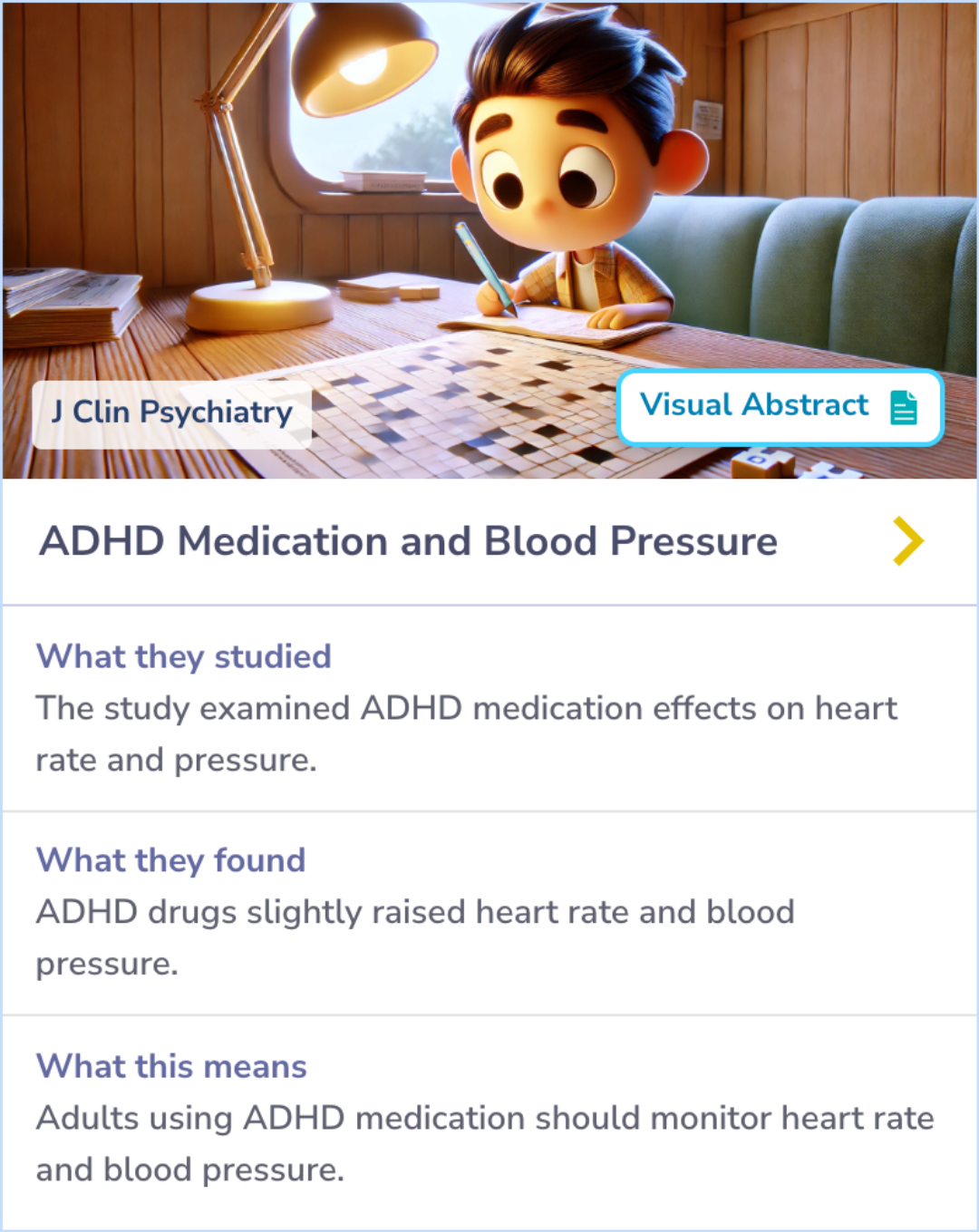Adderall
Evidence Based Answers
Adderall and Heart Health Risks
Adderall use can slightly raise heart rate and blood pressure, increasing cardiac risks for individuals with existing heart issues. A detailed heart evaluation is advised before starting Adderall, particularly for those with heart disease history.

Adderall raises heart rate and cardiac risks; evaluation advised pre-use.
Adderall's Impact on Heart Rate and Blood Pressure
Adderall can cause slight increases in heart rate and blood pressure. This includes a 2-4 mmHg rise in blood pressure and a 3-6 bpm increase in heart rate. These changes may be more risky for people with preexisting heart conditions.
People with hypertension, heart failure, or past heart attacks may experience heightened risks even with small changes. A healthcare provider should evaluate cardiovascular health before starting treatment.
People with hypertension, heart failure, or past heart attacks may experience heightened risks even with small changes. A healthcare provider should evaluate cardiovascular health before starting treatment.
“
Source Quotes:
Stimulant medications cause a modest increase in average blood pressure (about 2 to 4 mmHg) and average heart rate (about 3 to 6 bpm) [see ADVERSE REACTIONS], and individuals may have larger increases.,Caution is indicated in treating patients whose underlying medical conditions might be compromised by increases in blood pressure or heart rate, e.g., those with preexisting hypertension, heart failure, recent myocardial infarction, or ventricular arrhythmia [see CONTRAINDications].
Risk of Cardiac Events with Adderall Use
Adderall use may increase the risk of sudden cardiac events like heart attacks, strokes, and sudden death, particularly in people with existing heart issues.
Symptoms such as chest pain, fainting, or shortness of breath should be immediately checked by a healthcare provider to help reduce the chance of severe outcomes.
Symptoms such as chest pain, fainting, or shortness of breath should be immediately checked by a healthcare provider to help reduce the chance of severe outcomes.
“
Source Quotes:
Sudden deaths, stroke, and myocardial infarction have been reported in adults taking stimulant drugs at usual doses for ADHD.,Sudden death has been reported in association with CNS stimulant treatment at usual doses in children and adolescents with structural cardiac abnormalities or other serious heart problems.
Dextroamphetamine and amphetamine may cause sudden death in children and teenagers, especially children or teenagers with heart defects or serious heart problems.
Cardiac Assessment Before Starting Adderall
Before using Adderall, a detailed cardiac evaluation is recommended, especially for those with a family history of heart disease or known arrhythmias.
This evaluation may include a physical exam and, when necessary, further tests like an ECG to assess heart health.
This evaluation may include a physical exam and, when necessary, further tests like an ECG to assess heart health.
“
Source Quotes:
Cardiac status should have an assessment before initiating therapy in patients with known cardiac abnormalities.,If a baseline ECG reveals a concern, amphetamine should be prescribed with caution after a cardiology referral.
Children, adolescents, or adults who are being considered for treatment with stimulant medications should have a careful history (including assessment for a family history of sudden death or ventricular arrhythmia) and physical exam to assess for the presence of cardiac disease.
Severe Cardiovascular Reactions and Adderall
While rare, severe cardiovascular reactions such as heart attacks and sudden death have been observed in some Adderall users.
These reactions were more common in people with structural heart conditions or those using excessive doses. Avoiding unprescribed or misused Adderall can help prevent these severe reactions.
These reactions were more common in people with structural heart conditions or those using excessive doses. Avoiding unprescribed or misused Adderall can help prevent these severe reactions.
“
Source Quotes:
The association between amphetamine and severe cardiovascular events is controversial. There have been reports of severe cardiovascular events such as myocardial infarction and sudden cardiac death in patients (including children) treated with stimulants.,Some reported cases involved patients with underlying structural cardiovascular abnormalities and/or patients who took supratherapeutic doses of the medication.
Key Takeaways
Conclusions
Adderall affects heart rate and blood pressure, with increases noted even in people without preexisting conditions. Individuals with heart issues are at greater risk, and cardiac evaluations are advised before starting treatment. Adderall also heightens the risk of severe cardiac events, particularly in those with existing heart problems. Healthcare providers must monitor any signs like chest pain or shortness of breath to reduce complications.

Evidence Summary
How Adderall May Impact Heart Health
Research on Adderall raises concerns about how the medication may influence heart health, specifically the potential for cardiovascular side effects. Researchers are looking closely at how these effects might present in individuals who regularly take Adderall.
Several studies investigate whether using Adderall could impact aspects of heart function, with attention to those who might experience increased risks.
The focus is on possible side effects like irregular heart rhythms and other cardiovascular responses in those on this medication.
Several studies investigate whether using Adderall could impact aspects of heart function, with attention to those who might experience increased risks.
The focus is on possible side effects like irregular heart rhythms and other cardiovascular responses in those on this medication.
Evidence Summary
Comparing Cardiac Safety of ADHD Stimulants in Youth
This study tracked over two million children with ADHD to compare cardiac event risks between two common stimulant medications. Using data from Medicaid, researchers followed young users of methylphenidate and amphetamine salts to monitor emergency room visits for heart-related symptoms.
After accounting for health history, the findings showed that current users of either stimulant had no higher risk for cardiac issues than past users, indicating similar safety profiles for these medications.
After accounting for health history, the findings showed that current users of either stimulant had no higher risk for cardiac issues than past users, indicating similar safety profiles for these medications.
Evidence Summary
Impact of ADHD Medications on Heart Rate and Blood Pressure
ADHD medications, including both stimulants and nonstimulants, often lead to minor increases in heart rate and blood pressure. In studies, medications like amphetamine and bupropion showed slight but significant rises in systolic and diastolic blood pressure.
New cases of hypertension were observed in a small percentage of patients on both active medications and placebo, indicating that such cardiovascular changes aren't exclusive to drug treatments.
New cases of hypertension were observed in a small percentage of patients on both active medications and placebo, indicating that such cardiovascular changes aren't exclusive to drug treatments.


